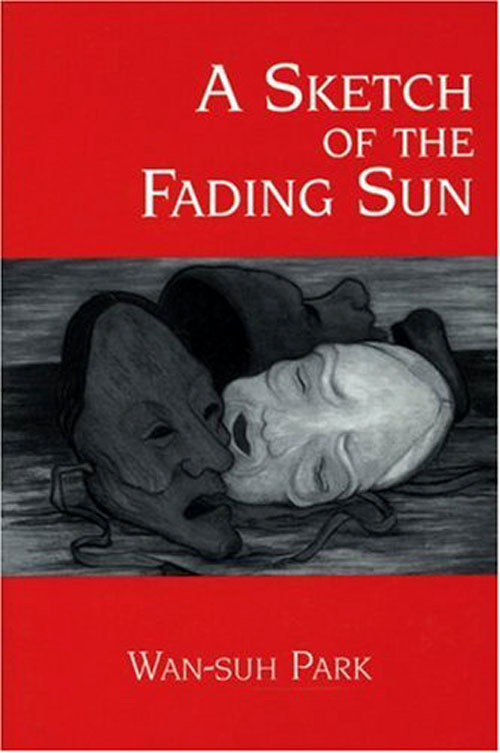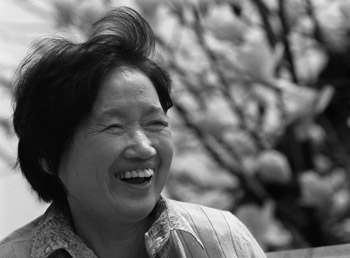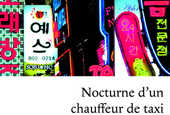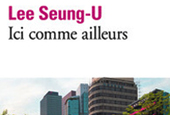One of the most lauded novelists in Korean literature is writer Park Wan-suh. Park has long been praised for many of her works, writings that are considered to have opened a new chapter in Korean literature.
Specifically, many of her works are themed on the division of Korea, based on her own experiences during the war, and on women who have tried to shape their identity during the course of modernization.
Middle-aged women or women in their twilight years are often featured in her novels, among which is the 1987 story, “A Sketch of The Fading Sun.” The tale has now come out in English, part of the same-titled English-language collection of some of Park’s outstanding short stories.

Told in the first person, the story revolves around an elderly woman married to a civil servant. The narrator lives a normal life, just taking care of her grandchildren. As one can tell by her confessions to a priest, however, there is a guilty conscience existing in the innermost part of her heart.
She expresses doubt during the confession, saying, “At the least, you [the priest] are supposed to call attention to ‘real’ sins, sins that we commit, even if we do not know that they are such, rather than call attention to the visible, clear mistakes that anyone can tell are ‘sinful,’ but which, in fact, are not, aren’t you?”
Such feelings of guilt stem from the recent death of Young-tack, the son of a couple close to her husband. Feeling sympathy for the orphan, the husband brought the young man home and the narrator looked after him as if he were her own grown-up son.
One day, the narrator finds out that Young-tack is the child of an out-of-wedlock relationship, and she takes a completely different attitude toward him. She attempts to kick the young adult out of her home, keeping her husband apart from him.
When she finds a stash of anti-government books, the narrator tells her husband that the adoptee has been involved in student movements against the government, a fact that the husband, as a civil servant, cannot tolerate.
In the end, Young-tack is thrown out of the house. However, the narrator cannot free herself from the guilt of kicking him out.
One day, with her grandchildren, she happens to see a news story that features a large group of college students at an anti-government sit-in. She covers their eyes with her hands, not letting them watch the news.
Suddenly, she found herself doing exactly what her own mother did to her. Decades ago, during the Japanese colonial period, her mother would ask her to close her eyes when she passed by a prison full of inmates, whether common criminals or anti-Japanese independence fighters.
She knows that the sense of guilt is due to what she has done to Young-tack and, at the same time, realizes that it might be due to the limited perspectives she has as a member of the middle-class.
 Park Wan-suh was born in 1931 in Gaepung-gun, Gyeonggi-do, currently in North Korea. Park entered Seoul National University in 1950, but the outbreak of the Korean War (1950-53) cut her studies short. In 1970, at the age of 40, the writer made her relatively late literary debut with “The Naked Tree,” her first full-length novel, about the Korean War and the tragic division of the country.
Park Wan-suh was born in 1931 in Gaepung-gun, Gyeonggi-do, currently in North Korea. Park entered Seoul National University in 1950, but the outbreak of the Korean War (1950-53) cut her studies short. In 1970, at the age of 40, the writer made her relatively late literary debut with “The Naked Tree,” her first full-length novel, about the Korean War and the tragic division of the country.
Her works include the novels “Warm Was The Winter That Year” and “Mother’s Garden,” as well as novels that portray the materialism prevalent among the middle-class, such as “A Reeling Afternoon” and “Identical Apartments.” Park’s work also targets the difficulties facing women, as told in “The Woman Standing” and “The Dreaming Incubator.”
This collection features four more stories of Park’s, as well as “A Sketch of The Fading Sun”: “During Three Days of Autumn” and “Momma’s Stake,” parts 1, 2 and 3.
By Sohn JiAe
Korea.net Staff Writer
jiae5853@korea.kr
Specifically, many of her works are themed on the division of Korea, based on her own experiences during the war, and on women who have tried to shape their identity during the course of modernization.
Middle-aged women or women in their twilight years are often featured in her novels, among which is the 1987 story, “A Sketch of The Fading Sun.” The tale has now come out in English, part of the same-titled English-language collection of some of Park’s outstanding short stories.

Park Wan-suh’s collection of short stories, “A Sketch of The Fading Sun,” has now been published in English for global audiences.
Told in the first person, the story revolves around an elderly woman married to a civil servant. The narrator lives a normal life, just taking care of her grandchildren. As one can tell by her confessions to a priest, however, there is a guilty conscience existing in the innermost part of her heart.
She expresses doubt during the confession, saying, “At the least, you [the priest] are supposed to call attention to ‘real’ sins, sins that we commit, even if we do not know that they are such, rather than call attention to the visible, clear mistakes that anyone can tell are ‘sinful,’ but which, in fact, are not, aren’t you?”
Such feelings of guilt stem from the recent death of Young-tack, the son of a couple close to her husband. Feeling sympathy for the orphan, the husband brought the young man home and the narrator looked after him as if he were her own grown-up son.
One day, the narrator finds out that Young-tack is the child of an out-of-wedlock relationship, and she takes a completely different attitude toward him. She attempts to kick the young adult out of her home, keeping her husband apart from him.
When she finds a stash of anti-government books, the narrator tells her husband that the adoptee has been involved in student movements against the government, a fact that the husband, as a civil servant, cannot tolerate.
In the end, Young-tack is thrown out of the house. However, the narrator cannot free herself from the guilt of kicking him out.
One day, with her grandchildren, she happens to see a news story that features a large group of college students at an anti-government sit-in. She covers their eyes with her hands, not letting them watch the news.
Suddenly, she found herself doing exactly what her own mother did to her. Decades ago, during the Japanese colonial period, her mother would ask her to close her eyes when she passed by a prison full of inmates, whether common criminals or anti-Japanese independence fighters.
She knows that the sense of guilt is due to what she has done to Young-tack and, at the same time, realizes that it might be due to the limited perspectives she has as a member of the middle-class.

Writer Park Wan-suh (photo courtesy of the Literature Translation Institute of Korea)
Her works include the novels “Warm Was The Winter That Year” and “Mother’s Garden,” as well as novels that portray the materialism prevalent among the middle-class, such as “A Reeling Afternoon” and “Identical Apartments.” Park’s work also targets the difficulties facing women, as told in “The Woman Standing” and “The Dreaming Incubator.”
This collection features four more stories of Park’s, as well as “A Sketch of The Fading Sun”: “During Three Days of Autumn” and “Momma’s Stake,” parts 1, 2 and 3.
By Sohn JiAe
Korea.net Staff Writer
jiae5853@korea.kr



